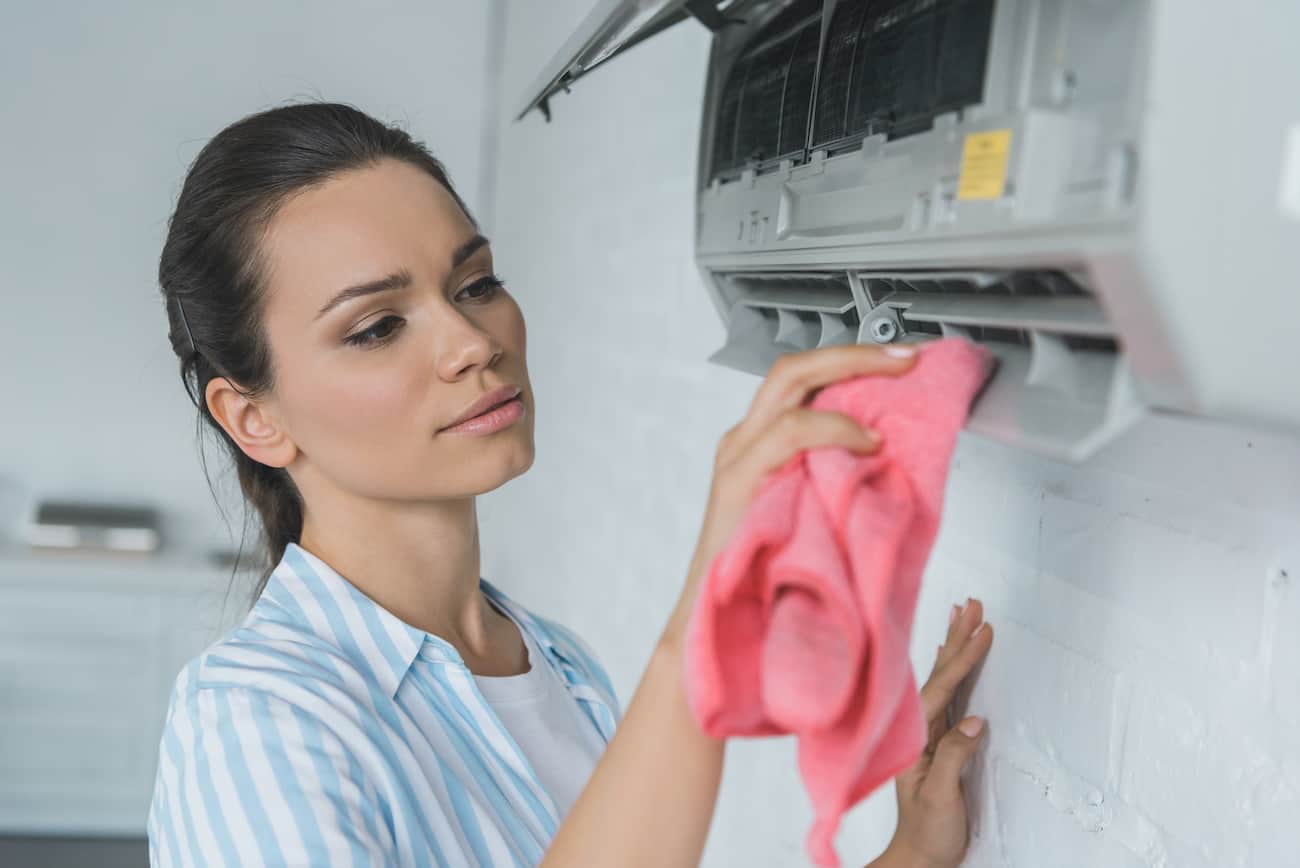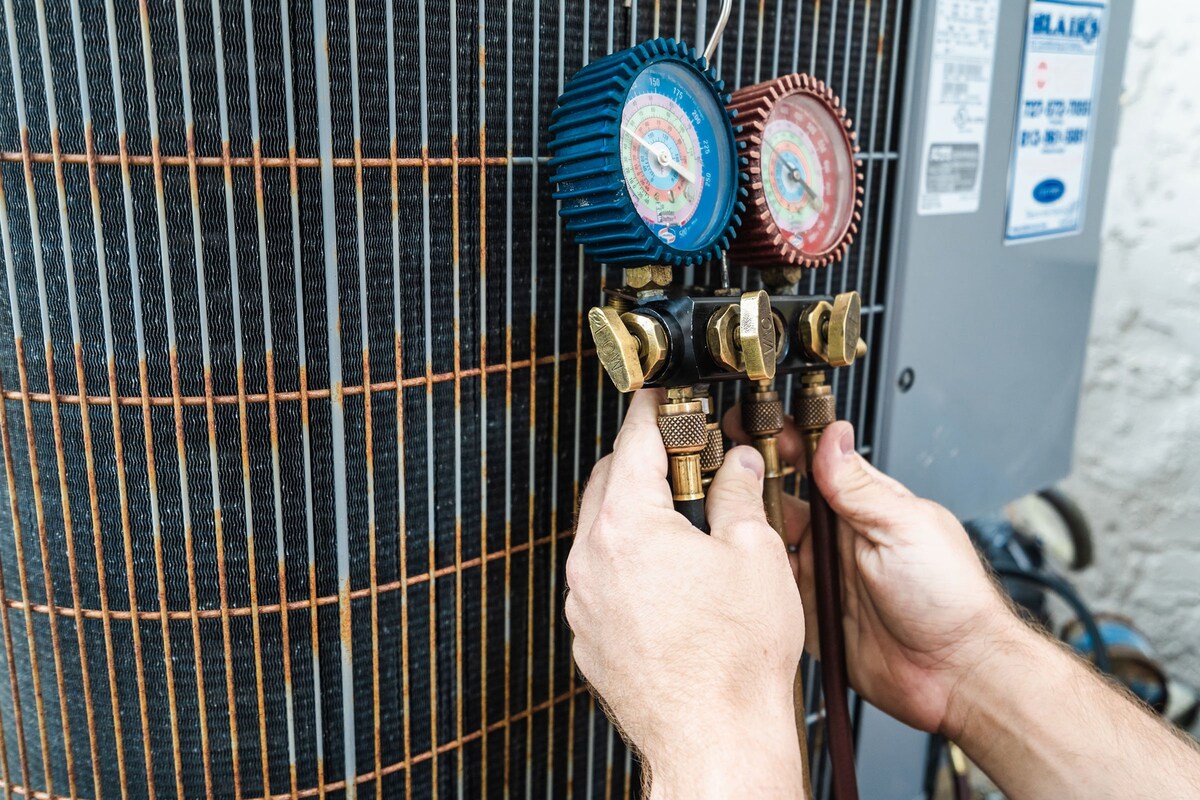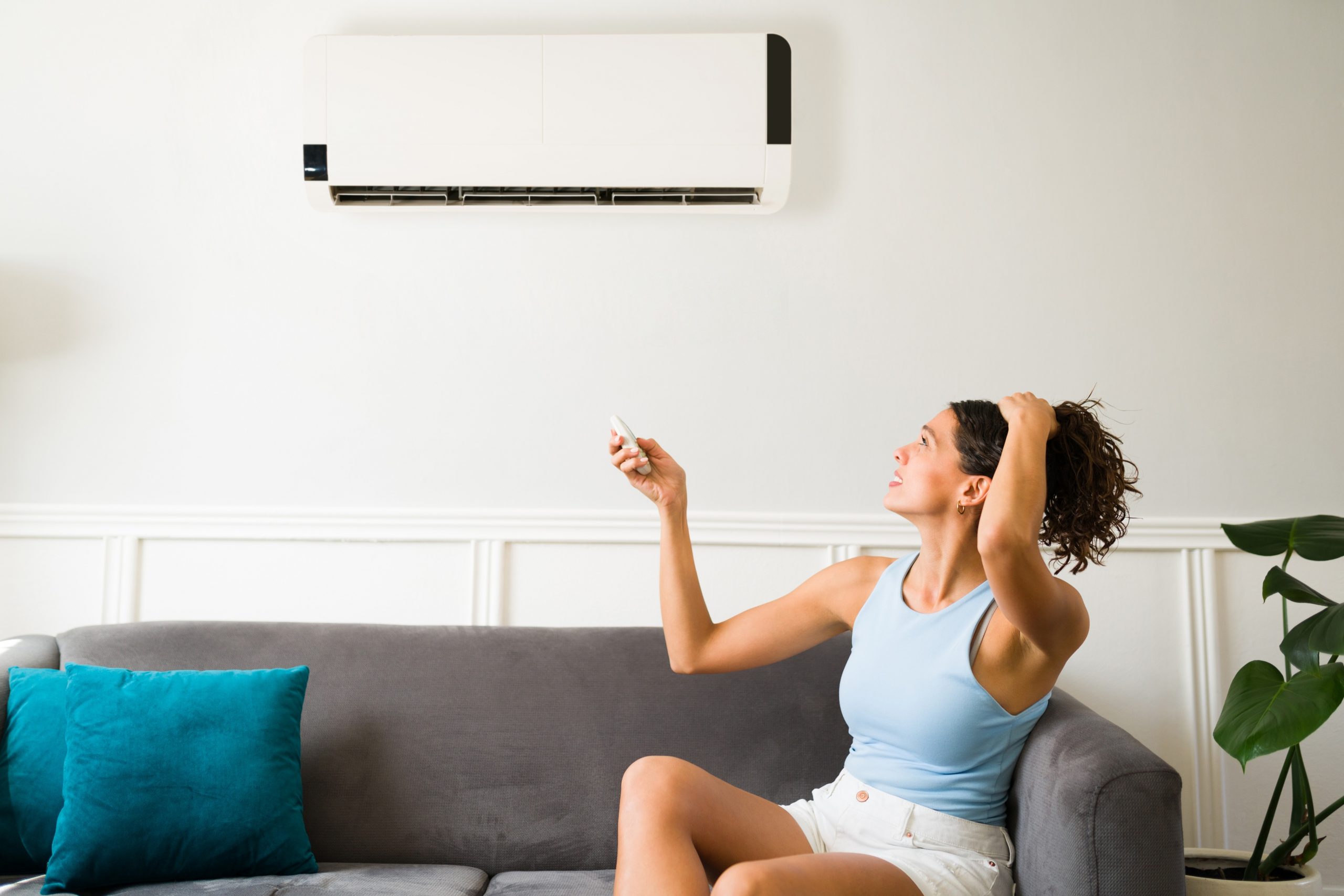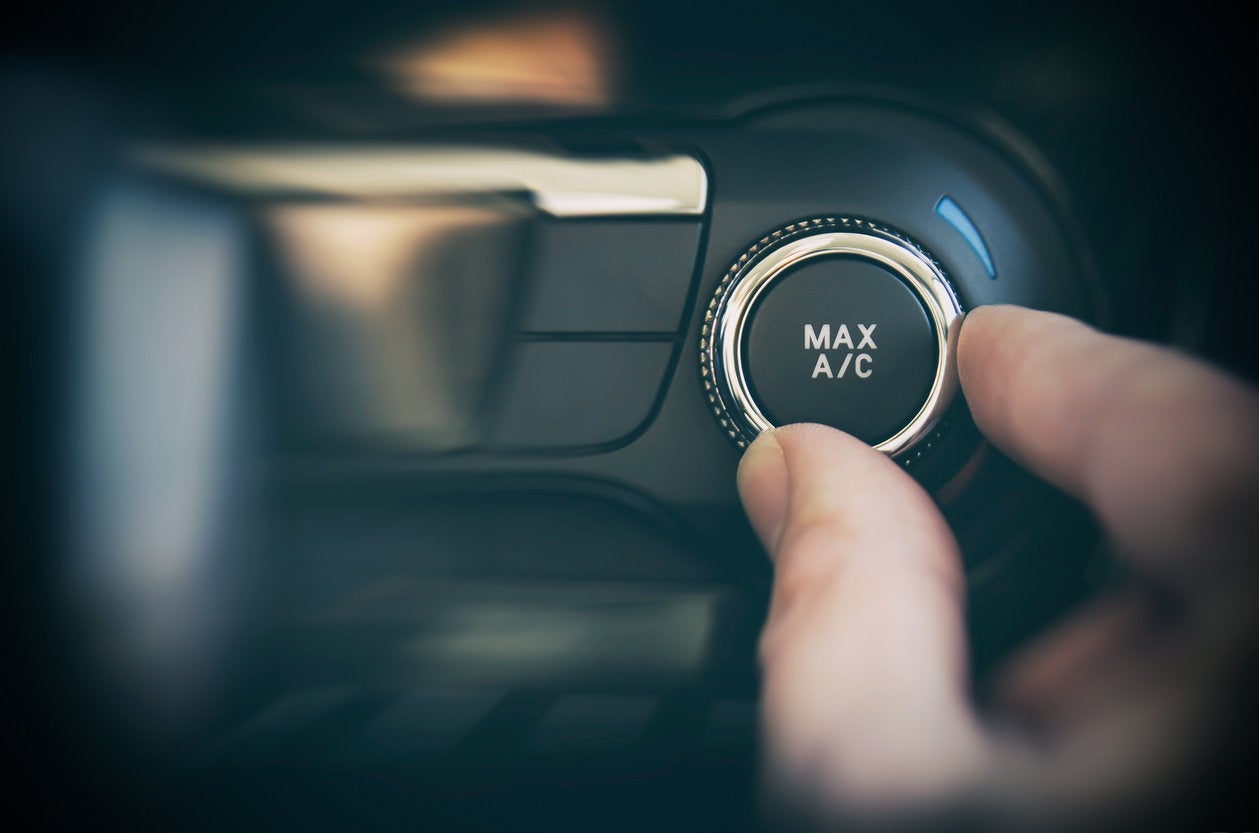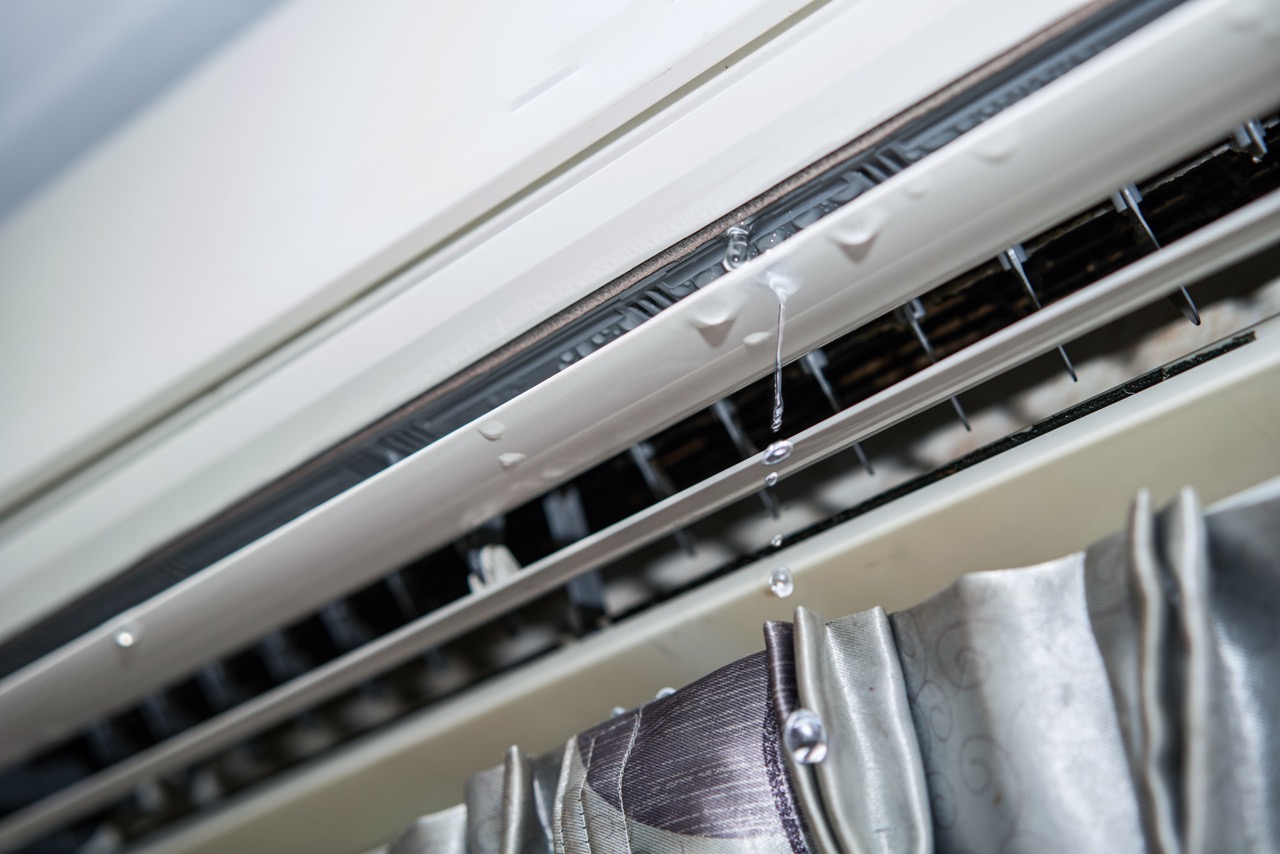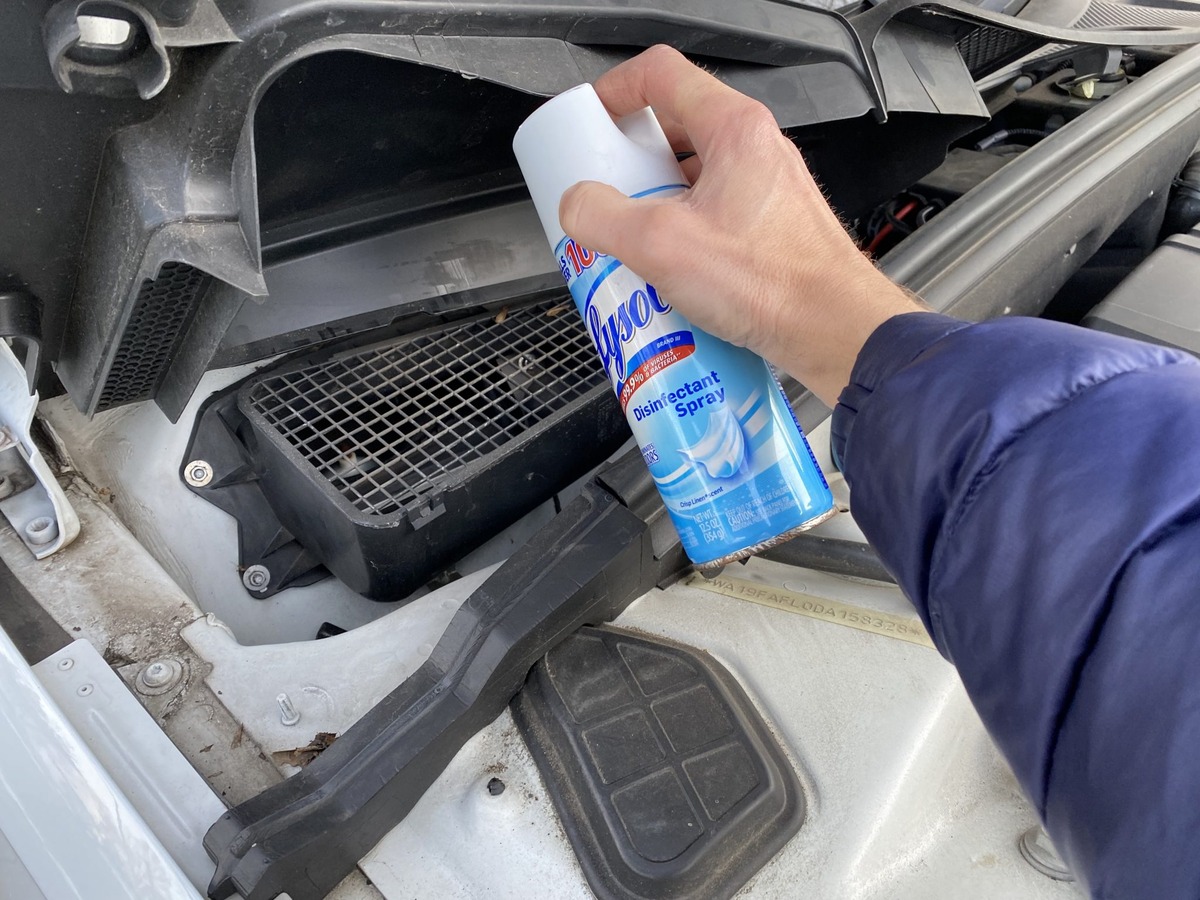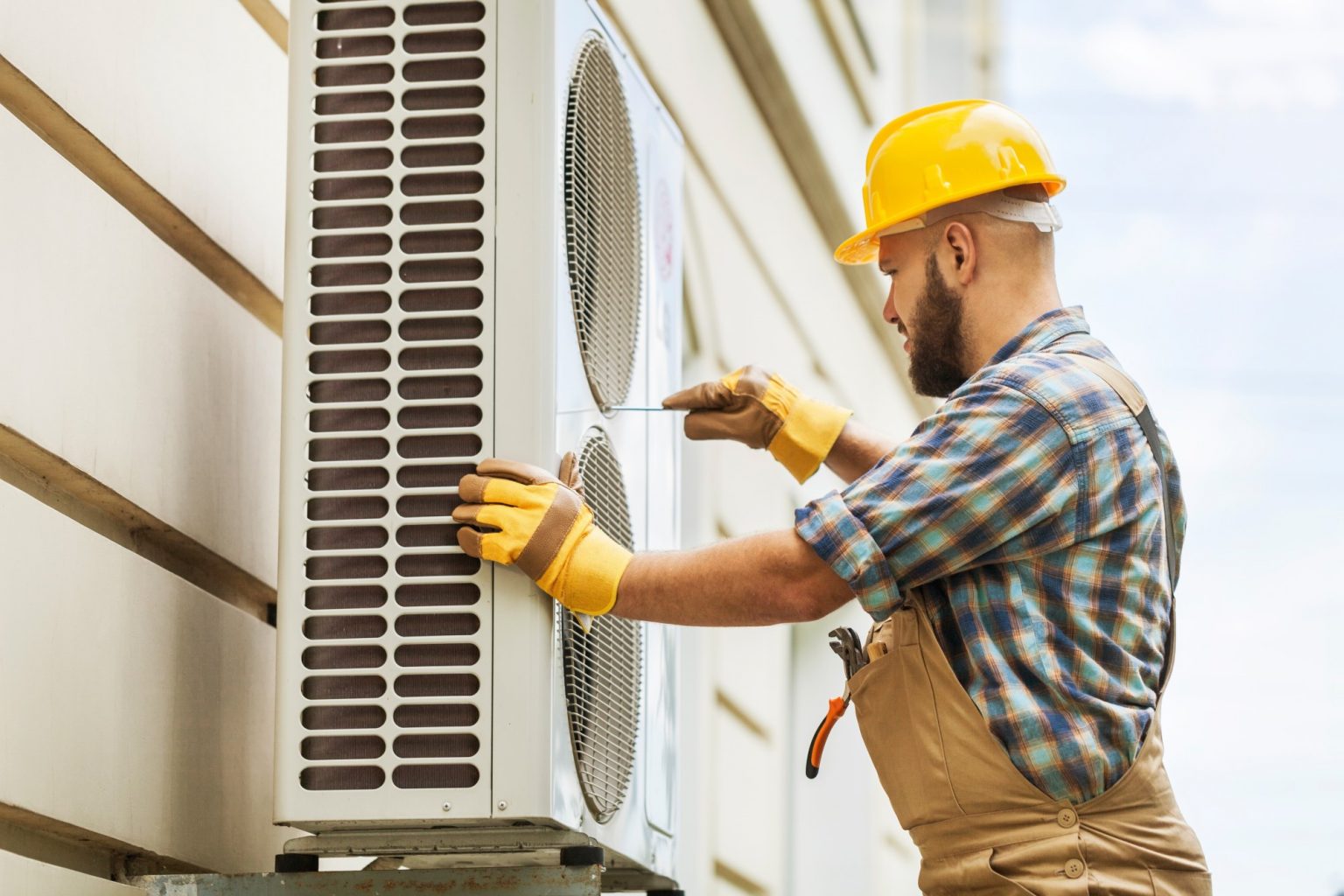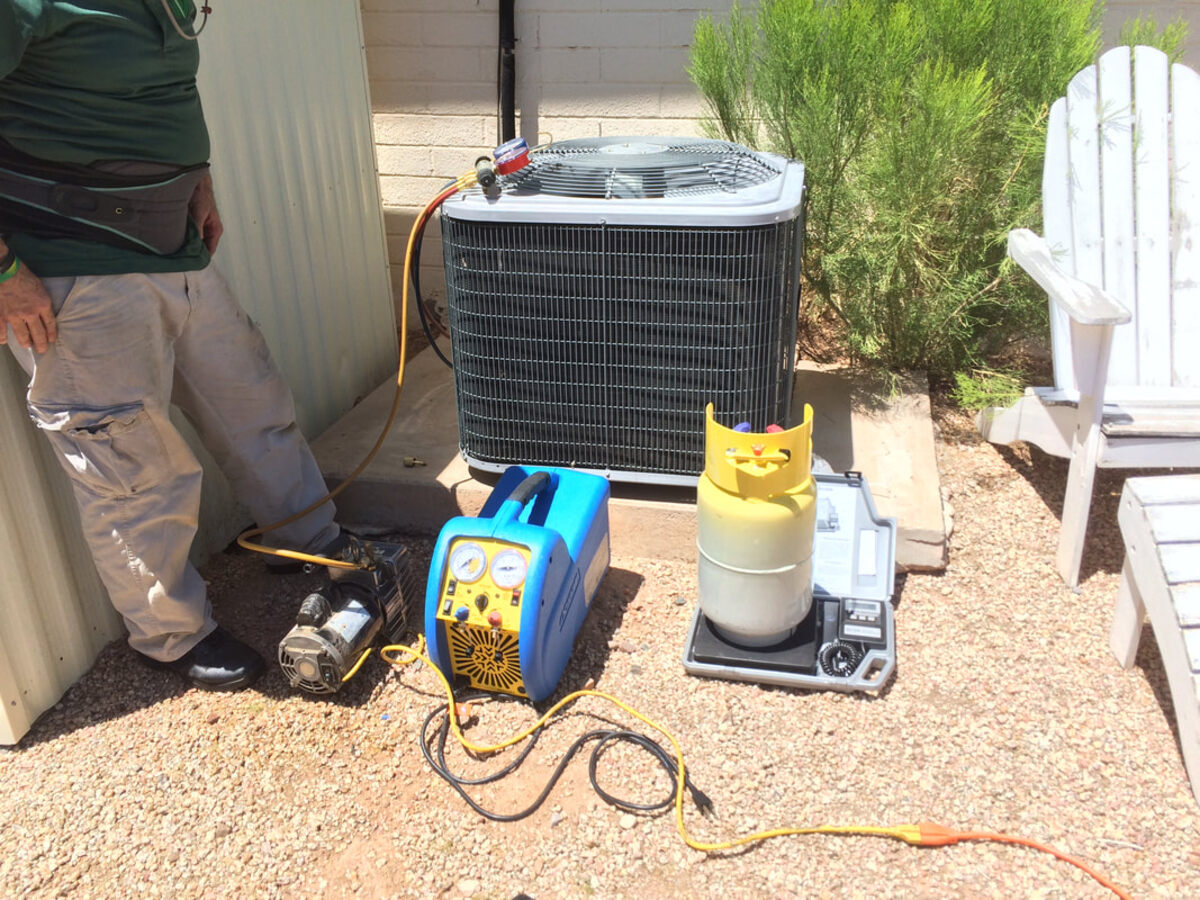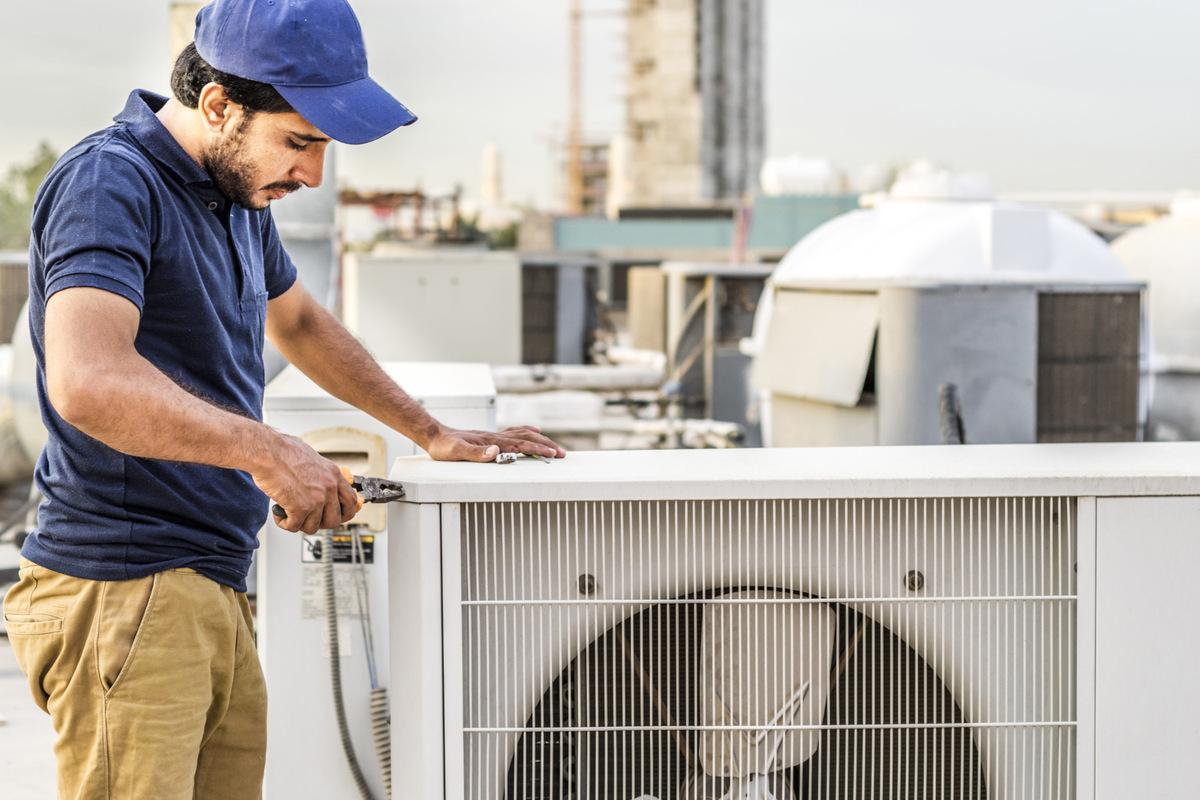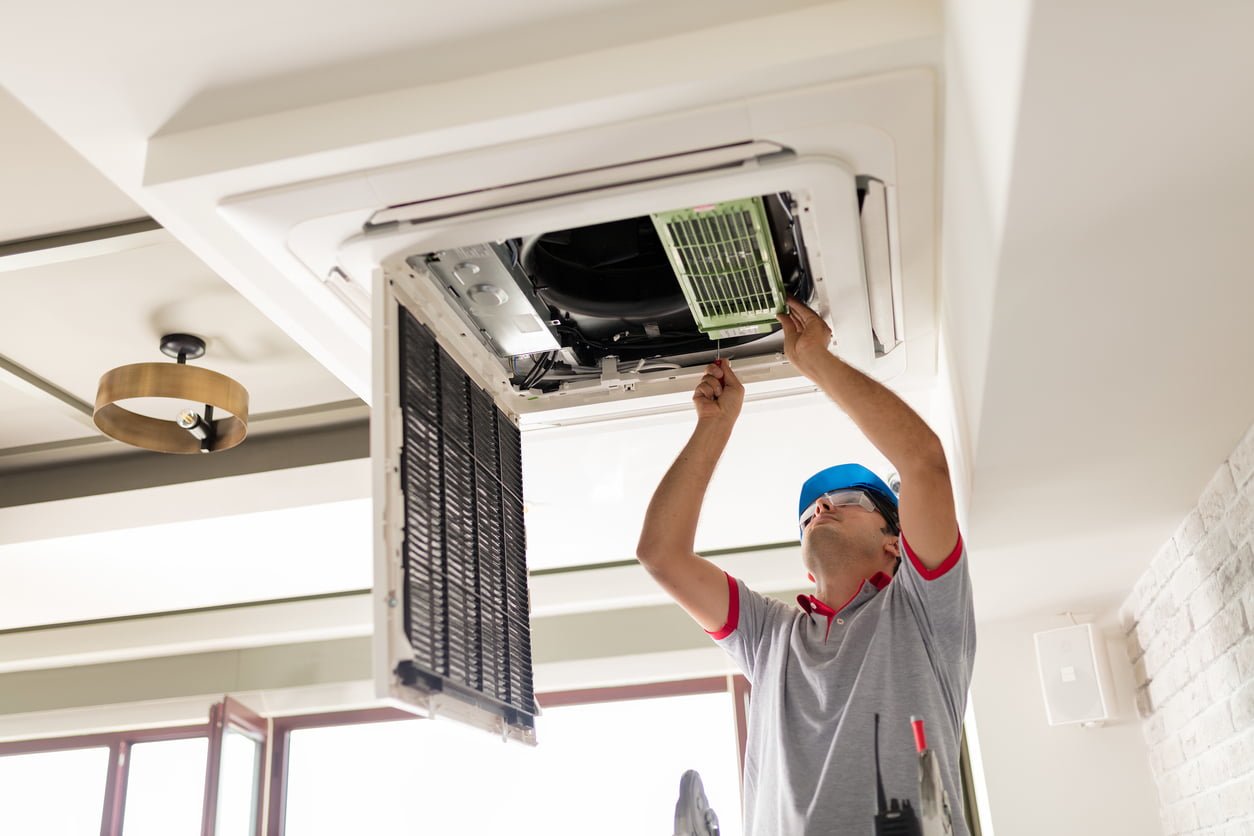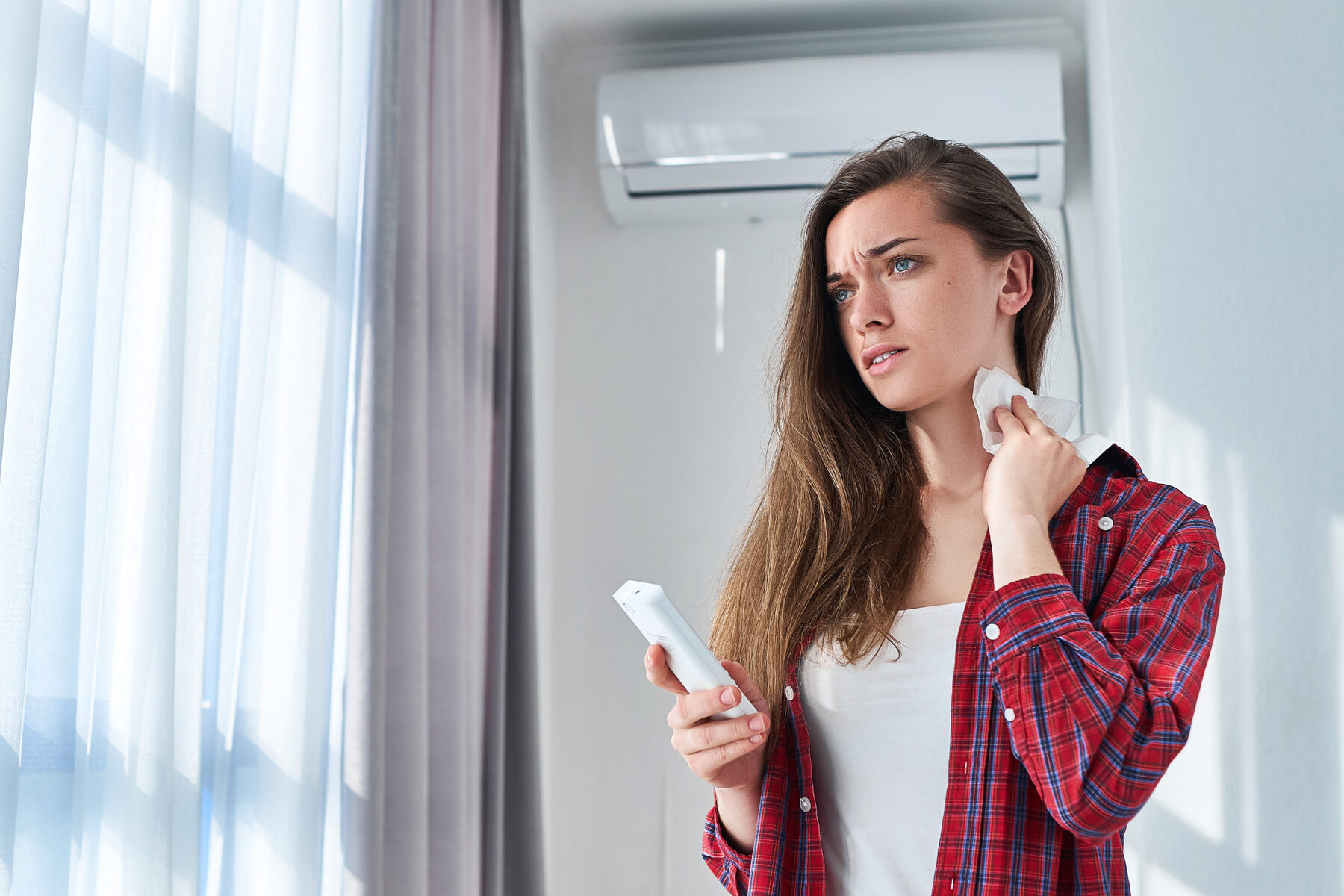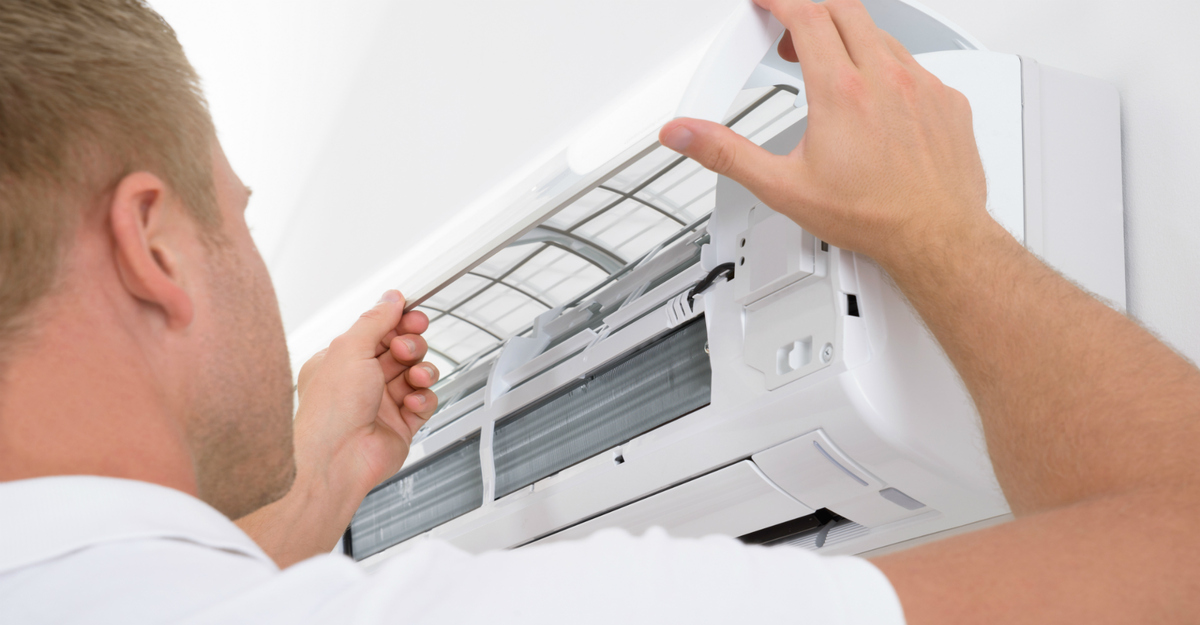Home>Home Maintenance>Why Does Air Conditioning Make My Nose Stuffy


Home Maintenance
Why Does Air Conditioning Make My Nose Stuffy
Modified: March 6, 2024
Discover why air conditioning can cause stuffy noses in your home and learn how to prevent it with proper home maintenance.
(Many of the links in this article redirect to a specific reviewed product. Your purchase of these products through affiliate links helps to generate commission for Storables.com, at no extra cost. Learn more)
Introduction
Air conditioning is a modern-day convenience that many of us rely on to keep our homes cool and comfortable during the hot summer months. However, some individuals may experience a stuffy nose when their air conditioning system is running. This can be both annoying and uncomfortable, especially for those who suffer from allergies or sinus issues. In this article, we will explore the reasons behind why air conditioning can make your nose stuffy, along with some tips to alleviate this problem.
Before we delve into the reasons why air conditioning can cause a stuffy nose, let’s first understand how an air conditioning system works. Air conditioning works by cooling the air in a room by removing heat and moisture. The air conditioning unit draws in warm air from the room through a filter, which removes dust, allergens, and other particles. The air is then passed over cooling coils containing a refrigerant, which absorbs heat from the air, making it cool. The cooled air is then circulated back into the room while the warm air and moisture are expelled outside.
One of the main reasons why air conditioning can lead to a stuffy nose is the impact it has on air quality. When the air conditioning system is running, it can circulate and recirculate the same air within the room. This can result in a build-up of dust, allergens, and other airborne particles, which can irritate the nasal passages and lead to congestion and a stuffy nose.
Air conditioning also has an impact on the humidity levels in a room. During the cooling process, the air conditioning system removes moisture from the air, resulting in lower humidity levels. While this may be desirable for creating a cool and comfortable environment, low humidity can contribute to dry nasal passages and increased susceptibility to nasal congestion.
In addition to the effects of air quality and humidity levels, air conditioning can exacerbate allergies and sinus issues. Allergens such as dust mites, pollen, and pet dander can become trapped in the air conditioning filters and ducts, leading to their recirculation throughout the room. These allergens can trigger allergic reactions, causing nasal congestion, sneezing, and a stuffy nose.
Furthermore, the dry air produced by air conditioning can cause dry sinuses, especially in individuals who already have underlying sinus issues. Dry sinuses can lead to irritation and inflammation, resulting in nasal congestion and a stuffy nose.
Now that we understand why air conditioning can make your nose stuffy, let’s explore some prevention and solutions to alleviate this problem. Keep reading to find out how you can enjoy the benefits of air conditioning while reducing the likelihood of experiencing a stuffy nose.
Key Takeaways:
- Air conditioning can cause a stuffy nose due to recirculating allergens and lowering humidity levels, but using high-efficiency filters and maintaining proper humidity can help alleviate this issue.
- Regularly cleaning or replacing air filters, using a humidifier, and managing pet dander can reduce the likelihood of experiencing a stuffy nose from air conditioning, improving overall comfort.
Read more: Why Does My Air Conditioning Smell
How Air Conditioning Works
In order to understand why air conditioning can make your nose stuffy, it is important to have a basic understanding of how an air conditioning system works. Air conditioning systems are designed to cool the air in a room by removing heat and moisture.
The process starts with an air conditioning unit drawing warm air from the room through a filter. The filter’s purpose is to remove dust, allergens, and other particles that may be present in the air. Once the air has passed through the filter, it is directed over cooling coils that contain a refrigerant, typically a chemical compound called hydrofluorocarbons (HFCs).
As the warm air passes over the cooling coils, the refrigerant absorbs the heat from the air. This causes the refrigerant to evaporate and turn into a gas. The cooled air is then circulated back into the room, while the warm air and excess moisture are expelled outside through the system’s exhaust.
The cooled air being circulated back into the room helps lower the overall temperature, creating a more comfortable indoor environment. The refrigerant, which is now in a gaseous state, is compressed by a compressor located in the air conditioning unit. This compression increases the temperature of the refrigerant, changing it back into a high-pressure liquid form.
The high-pressure liquid refrigerant then flows through an expansion valve, which releases the pressure and causes the refrigerant to rapidly expand. This expansion results in the absorption of heat from the surrounding air, which cools down the refrigerant and prepares it to repeat the cooling process again.
It’s important to note that the process of cooling the air also has an impact on the humidity levels in the room. As the air passes over the cooling coils, the moisture in the air condenses and is collected as water droplets. This reduces the humidity in the room, creating a drier environment.
Overall, air conditioning systems play a crucial role in keeping our indoor spaces cool and comfortable during hot weather. However, the process of cooling the air and reducing humidity can have an impact on the air quality and moisture levels in the room, which can contribute to nasal congestion and a stuffy nose for some individuals.
Effects of Air Conditioning on Air Quality
While air conditioning provides relief from the heat, it can also have an impact on the quality of the air we breathe indoors. When the air conditioning system is running, it recirculates and filters the air within the room, which can affect the overall air quality.
One of the main factors that can affect air quality is the buildup of dust, allergens, and other particles in the air conditioning system. The filter in the air conditioning unit is designed to trap and remove these particles from the air, preventing them from circulating within the room. However, if the filter is not cleaned or replaced regularly, it can become clogged and less effective at capturing these particles.
When the filter is clogged, the air conditioning system may not be able to effectively remove dust, allergens, and other particles from the air. This can result in these particles being recirculated throughout the room, leading to potential respiratory issues and nasal congestion for individuals who are sensitive to allergens.
In addition to dust and allergens, air conditioning can also affect the presence of indoor pollutants such as volatile organic compounds (VOCs) and mold spores. VOCs are chemicals emitted by certain products like cleaning agents, paints, and furniture that can be released into the air. When the air conditioning system recirculates the air, it can redistribute these VOCs throughout the room, potentially causing respiratory irritation and discomfort.
Mold spores are another concern when it comes to air quality and air conditioning. If moisture is present within the air conditioning system, such as in ducts or coils, it can create an environment conducive to mold growth. When the air conditioning system is turned on, it can disperse these mold spores into the air, which can trigger respiratory issues and allergies in individuals who are sensitive to mold.
To maintain good air quality with your air conditioning system, it is important to regularly clean or replace the air filter as recommended by the manufacturer. This will help ensure that the filter is able to effectively capture dust, allergens, and other particles from the air. Additionally, it is advisable to have regular maintenance for your air conditioning system to check for any moisture buildup or mold growth that could affect the air quality.
By addressing these factors and taking necessary precautions, you can help maintain better air quality in your home while enjoying the cooling benefits of your air conditioning system. This can reduce the risk of nasal congestion and respiratory issues that can be caused by poor air quality.
Impact of Air Conditioning on Humidity Levels
Air conditioning not only cools the air in a room but also has a significant impact on the humidity levels. While lower humidity levels can contribute to a more comfortable indoor environment, they can also lead to dry nasal passages and increased susceptibility to nasal congestion.
When the air conditioning system is running, it removes moisture from the air as part of the cooling process. The air is passed over cooling coils containing a refrigerant, causing the moisture in the air to condense and collect as water droplets. This moisture is then expelled outside through the system’s exhaust, resulting in lowered humidity levels inside the room.
While lower humidity can help create a cooler and less muggy environment, it can also have negative effects on our respiratory health. When there is insufficient moisture in the air, it can cause the nasal passages to become dry and irritated.
Dry nasal passages are more prone to inflammation and congestion, which can lead to a stuffy nose. This is particularly problematic for individuals who already have underlying sinus issues, as dry air can further exacerbate their symptoms.
Additionally, dry air can also affect the function of the mucous membranes in the nasal passages. These membranes play a crucial role in trapping and filtering airborne particles, such as dust and allergens, before they enter the respiratory system. When the air is too dry, the mucous membranes may not be as effective in performing their function, allowing these particles to irritate the nasal passages and potentially cause congestion.
To mitigate the potential impact of low humidity levels on nasal congestion, there are several steps you can take.
- Use a humidifier: Adding moisture back into the air can help alleviate dry nasal passages and combat the effects of low humidity. Using a humidifier in rooms where you spend the most time, such as the bedroom or living room, can be beneficial. Make sure to follow the manufacturer’s instructions for proper use and maintenance of the humidifier.
- Stay hydrated: Drinking an adequate amount of water throughout the day can help keep your body hydrated, including your nasal passages. Hydration is key to maintaining moisture levels in your mucous membranes and preventing them from becoming too dry.
- Avoid excessive use of air conditioning: While air conditioning is essential for maintaining comfort during hot weather, excessive use can further reduce humidity levels. Consider using the air conditioning system intermittently or adjusting the temperature settings to strike a balance between comfort and humidity.
- Keep windows and doors closed: To minimize the amount of dry outdoor air entering your home, keep windows and doors closed when the air conditioning is running.
By implementing these measures, you can help mitigate the potential impact of low humidity levels and reduce the likelihood of experiencing a stuffy nose due to air conditioning.
Try using a humidifier in the room with the air conditioning to add moisture to the air and prevent your nose from getting stuffy.
Allergens and Air Conditioning
Allergens such as dust mites, pollen, pet dander, and mold spores can have a significant impact on indoor air quality. When an air conditioning system is running, it has the potential to either remove or circulate these allergens throughout the room, depending on the condition of the system and its filters.
Dust mites are microscopic organisms that thrive in warm and humid environments. They can be found in bedding, upholstered furniture, and carpeting. When the air conditioning system is functioning properly, it can help reduce the presence of dust mites in the air by filtering them out through the air filter. However, if the filter is dirty or not replaced regularly, it may not be effective in trapping dust mites, leading to their continued circulation in the room.
Pollen is another common allergen that can find its way into your home. It is brought indoors through open windows or carried in on clothing and pets. The air conditioning system can help alleviate symptoms associated with pollen allergies by filtering the air and reducing the presence of pollen particles indoors. However, it is important to note that the air filters in air conditioning units need to be clean and in good condition to effectively trap pollen.
Pet dander is a common allergen for many individuals. It consists of tiny particles of dead skin cells and hair shed by cats, dogs, and other household pets. When the air conditioning system is running, it can help remove pet dander from the air by trapping it in the filter. Regularly cleaning or replacing the filter is crucial to maintaining effective removal of pet dander from the indoor air.
Mold spores can also be a concern for individuals with allergies. Mold can grow in damp areas, such as basements, bathrooms, and around air conditioning units, if there is moisture present. When the air conditioning system is turned on, it can circulate these mold spores throughout the room. Regular maintenance of the air conditioning unit, including cleaning the ducts and coils, can help minimize the risk of mold growth and the circulation of mold spores.
To mitigate the impact of allergens on indoor air quality and reduce the likelihood of nasal congestion, consider implementing the following measures:
- Clean or replace air filters regularly: This helps ensure that the air conditioning system is effectively removing allergens from the air.
- Vacuum and dust frequently: Regular cleaning helps reduce the buildup of dust and other allergens, minimizing their presence in the indoor environment.
- Use allergen-reducing bedding: Encasing mattresses, pillows, and box springs in allergen-proof covers can help minimize exposure to dust mites.
- Keep pets off furniture and out of bedrooms: This can help reduce the amount of pet dander in the air.
- Maintain proper ventilation: Adequate ventilation, especially in areas prone to moisture, can help prevent mold growth.
By taking these steps to minimize the presence of allergens in your home and maintaining a clean and well-functioning air conditioning system, you can improve indoor air quality and reduce the risk of nasal congestion caused by allergens.
Read more: Why Is My Air Conditioning Unit Making Noise
Dry Sinuses and Air Conditioning
Air conditioning can contribute to dry sinuses, which can be uncomfortable and lead to nasal congestion. When the air conditioning system is running, it removes moisture from the air as part of the cooling process. While this helps create a more comfortable indoor environment, it can also result in reduced humidity levels that can dry out the nasal passages.
Dry sinuses occur when the mucous membranes in the nasal passages become dehydrated. These membranes are responsible for producing mucus, which helps trap and filter airborne particles, moisturizes the nasal passages, and supports healthy sinus function. When the air is too dry, it can cause these mucous membranes to dry out, leading to irritation and discomfort.
Individuals with pre-existing sinus issues, such as chronic sinusitis or allergies, may be more susceptible to experiencing dry sinuses when exposed to air conditioning. Dry sinuses can exacerbate their symptoms, causing increased nasal congestion, irritation, and difficulty breathing.
To alleviate dry sinuses and reduce the likelihood of nasal congestion, consider the following tips:
- Use a humidifier: Adding moisture back into the air can help alleviate dry sinuses. Using a humidifier in the room where you spend the most time, especially while sleeping, can provide relief. Make sure to clean the humidifier regularly to prevent the growth of mold or bacteria.
- Stay hydrated: Drinking enough water throughout the day helps maintain adequate hydration, including in the nasal passages. This can help prevent dryness and maintain the moisture levels in the sinuses.
- Avoid excessive use of air conditioning: While air conditioning is essential for keeping our homes cool, excessive use can further reduce humidity levels. Consider using the air conditioning system intermittently or adjusting the temperature settings to strike a balance between comfort and humidity.
- Protect your sinuses: Using a saline nasal spray or rinse can help moisturize the nasal passages and alleviate dryness. These products can also help flush out irritants and allergens, reducing the likelihood of nasal congestion.
- Avoid direct airflow: If possible, position air vents or fans away from directly blowing on your face. Direct airflow can further contribute to drying out the nasal passages.
By implementing these measures, you can help combat dry sinuses and reduce the risk of nasal congestion caused by air conditioning. Maintaining proper hydration and ensuring a balanced level of humidity can promote overall nasal health and improve your comfort during the hot summer months.
Prevention and Solutions for Stuffy Nose from Air Conditioning
Experiencing a stuffy nose due to air conditioning can be frustrating and uncomfortable. However, there are several prevention and solutions that can help alleviate this problem and improve your overall comfort.
Here are some tips to prevent and address a stuffy nose from air conditioning:
- Regularly clean or replace air filters: The air filter in your air conditioning system plays a vital role in capturing dust, allergens, and other particles from the air. Make sure to clean or replace the filter as recommended by the manufacturer to maintain its effectiveness. This helps prevent the recirculation of these particles, which can contribute to nasal congestion.
- Consider using high-efficiency air filters: Upgrading to high-efficiency air filters can provide enhanced filtration and better capture allergens and other airborne particles. Look for filters with a higher Minimum Efficiency Rating Value (MERV) to improve air quality and minimize the likelihood of nasal congestion.
- Maintain proper humidity levels: Dry air can lead to dry nasal passages and increased susceptibility to nasal congestion. Using a humidifier in the room can help add moisture back into the air and alleviate dryness. Keep the humidity levels between 40-60% for optimal comfort.
- Keep windows and doors closed: To minimize the entry of outdoor allergens and pollutants, keep windows and doors closed when the air conditioning is running. This reduces the risk of irritants circulating within the room and contributing to nasal congestion.
- Clean your air conditioning system: Regular maintenance of your air conditioning system is important to ensure its optimal performance. Dust, dirt, and mold can accumulate in the ducts and coils, potentially affecting air quality. Consider professional cleaning to remove any buildup and improve indoor air quality.
- Manage pet dander: If you have pets, make sure to regularly groom them, bathe them, and keep them off furniture to minimize the amount of pet dander in the air. Regular vacuuming and cleaning of surfaces can also help reduce pet allergens and prevent nasal congestion.
- Use nasal saline rinses: Nasal saline rinses can help moisturize the nasal passages and flush out irritants. Use a saline solution or a neti pot to gently flush the sinuses with the saline solution, providing relief from a stuffy nose caused by air conditioning.
By implementing these prevention and solutions, you can reduce the likelihood of a stuffy nose from air conditioning and improve your overall comfort. It’s important to note that if nasal congestion persists or worsens, it is advisable to consult a healthcare professional for further evaluation and guidance.
Conclusion
Air conditioning is a modern luxury that provides comfort during hot summer months. However, it can occasionally cause a stuffy nose, leading to discomfort and frustration, especially for individuals with allergies or sinus issues. Understanding the reasons behind this issue and taking appropriate preventive measures can significantly improve your indoor air quality and overall comfort.
In this article, we explored how air conditioning works, its impact on air quality, humidity levels, allergens, and the occurrence of dry sinuses. We learned that air conditioning systems can recirculate and trap dust, allergens, and other particles, contributing to nasal congestion. Additionally, the cooling process, while providing comfort, can also lower humidity levels, leading to dry nasal passages and increased susceptibility to congestion.
To prevent and alleviate a stuffy nose from air conditioning, it is crucial to undertake several preventive measures. Regularly cleaning or replacing air filters, using high-efficiency filters, and maintaining proper humidity levels with the help of a humidifier are effective strategies for enhancing air quality and reducing nasal congestion. Keeping windows and doors closed, cleaning the air conditioning system, managing pet dander, and using nasal saline rinses are additional solutions that can contribute to alleviating nasal congestion.
By implementing these measures, you can minimize the impact of air conditioning on your nasal passages and enjoy a more comfortable experience in your home. However, it’s essential to remember that if nasal congestion persists or worsens, seeking medical advice from a healthcare professional is always recommended.
Air conditioning is a valuable tool for creating a cool and comfortable indoor environment. With proper attention to air quality, humidity levels, and allergens management, you can mitigate the effects of air conditioning on nasal congestion and enjoy its benefits without suffering the discomfort of a stuffy nose.
Frequently Asked Questions about Why Does Air Conditioning Make My Nose Stuffy
Was this page helpful?
At Storables.com, we guarantee accurate and reliable information. Our content, validated by Expert Board Contributors, is crafted following stringent Editorial Policies. We're committed to providing you with well-researched, expert-backed insights for all your informational needs.
